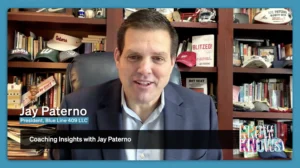Why Sports Leagues Are Lining Up For The Same New Partnership
On May 14, the United States Supreme Court ruled that the Professional and Amateur Sports Protection Act of 1992 (PASPA) in Murphy vs. NCAA violated the constitution, allowing states to legalize sports betting if they so choose.
Several professional sports leagues, including Major League Baseball (MLB) have been looking to benefit from the sports betting market for quite some time. Kenny Gersh, Executive Vice President of gaming for MLB, believes that the league’s prior request for an integrity fee on all legal wagers placed on the league’s events is reasonable.
“At the end of the day it’s our sport and our events because if the Yankees weren’t playing the Red Sox last night, you are not betting on the Yankees and the Red Sox…we think we should be involved in that,” Gersh said, according to SportsProMedia.com.
That desire to get in on the action came to fruition just last week, when the league announced it would be entering into an agreement with MGM Resorts International.
According to ESPN, MLB commissioner Rob Manfred’s feedback regarding the partnership between the league and MGM was optimistic.
“Our partnership with MGM will help us navigate this evolving space responsibly, and we look forward to the fan engagement opportunities ahead,” he said.
According to Forbes, the partnership between the MLB and MGM will be the first time the league will have an official gaming and entertainment partner. MGM will have access to exclusive data, such as enhanced player stats and intellectual property, as well as team logos to display in their sportsbooks and advertising.
Betting operations and leagues are not the only ones to benefit. A Nielsen Sports study, backed by the American Gaming Association (AGA), estimated that directly and indirectly, gaming services are predicted to produce $596 million from direct TV advertising and $267 million from sponsorships.
The freedom and ease of access of having the option to gamble on a certain game could create an increase of viewers. Those who have something wagered on the game are more inclined to keep track of how well their “investment” is doing.
Leagues such as the National Basketball Association (NBA) and the Women’s National Basketball Association (WNBA) partnered with MGM in June, and are expected to gain roughly $425 million from fan engagement and a projected $160 million is estimated to be generated from sponsorships, advertising and product fees from betting operators. MLB is estimated to bring in a total of $1.106 billion.
Even Buffalo Wild Wings is gearing up to take advantage of the extermination of the ’92 federal statute. The sports restaurant chain, acquired by Roark Capital Group last November for a reported $2.9 billion, would have to comply with each state’s licensing requirements, but the wished-for plan to incorporate live sports betting in its establishments could improve its sales.
Oxford University conducted a study on the positive impact that the U.S economy would experience if sports gambling was legalized suggesting that there would be a surge of new jobs.
Openings for those in human resources, the need for content and ticket writers , managers and supervisors, security personnel, customer support and the required job openings in the IT field alone would result in an increase within the U.S economy.
For leagues like MLB, opening its arms to sports wagering could provide a financial boon but also welcome a vast new audience, engaging fans in new ways.
For the latest news, videos, and podcasts in the Sports & Entertainment Industry, be sure to subscribe to our industry publication.
Follow us on social media for the latest updates in B2B!
Twitter – @SportsEntMKSL
Facebook – facebook.com/marketscale
LinkedIn – linkedin.com/company/marketscale








